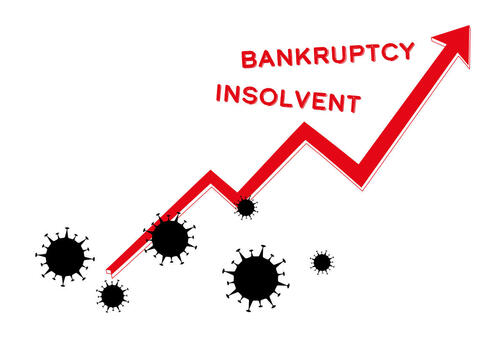Blog
The Unique Needs of SMEs in Corporate Distress

This blog is a summary of our Virtual Roundtable Series #28 - Handling Insolvency during Crisis: What Will SMEs Need?
SMEs are the backbones of many economies around the world, especially in the emerging countries where they play even more important roles in employment and income generations, innovation as well as provision of public goods and services.
The pandemic has caused unprecedented challenges to businesses across industries and even threatened their survivals particularly those in tourism and travel industry. Based on pulse surveys conducted with members of the SME Finance Forum around mid-2020, SME clients of those member institutions were expected to remain solvent not more than 2-3 months. Around the same time, many experts had predicted that business failures and insolvencies would be on the sharp rise in early 2021.
Against this backdrop, the SME Finance Forum recently organized a webinar on the topic of handling insolvency during crisis where insolvency experts have extensively discussed challenges faced by the SMEs entering insolvency. With my deep personal interests in topics related to MSMEs, I was privileged to have the opportunity to listen to the discussions.
Challenges faced by MSMEs entering insolvency, according to the experts, are many folds. Some of the most notable ones include: 1) high level of informality of the businesses which, as a result, means that the MSMEs have limited information to satisfy insolvency law requirements, 2) insufficient assets to fund insolvency proceedings, 3) creditors passivity or lack of interest in the restructuring of the MSME, and 4) overlaps between business and personal insolvency regimes (e.g. in some countries consumer debts and entrepreneur debts are put in the same basket, while others have laws covering both entrepreneurs and companies). Because of those challenges, MSMEs tend to avoid formal insolvency procedures wherever they can, particularly on the micro and small side of the spectrum.
The experts also agreed that the earlier fear of sharp increase in insolvency cases has yet to materialize, partly due to unprecedented level of fiscal stimulus, and regulatory forbearances introduced by central banks around the world. Creditors’ behaviors are also “wait and see”, not pushing their debtors into insolvency. However, as the fiscal stimulus and regulatory forbearance are coming to an end, such an increase might be inevitable.
Noting the challenges faced by the SMEs in leveraging the insolvency regimes, I was pleased to learn that the World Bank, together with the United Nations Commission on International Trade Law (UNCITRAL), has recently launched an updated Principles for Effective Insolvency and Creditor/Debtor Regimes (ICR Principles) and that this year’s amendments aim at simplifying and improving the insolvency processes for micro and small enterprises and ensuring discharge of debts at the end of the process for natural person entrepreneurs, among other things. Key benchmarks in the new Principles include: the promotion of informal, out-of-court workouts, or a hybrid combination of court and out-of-court processes; simplified restructuring procedures; and a broad discharge-of-debts regime following liquidation for entrepreneurs.
My one takeaway from the rich discussion is that the insolvency system should be useful to restructure viable companies that face financial distress in order to survive the crisis. At the same time, the system should also help non-viable companies to exit swiftly and efficiently.





